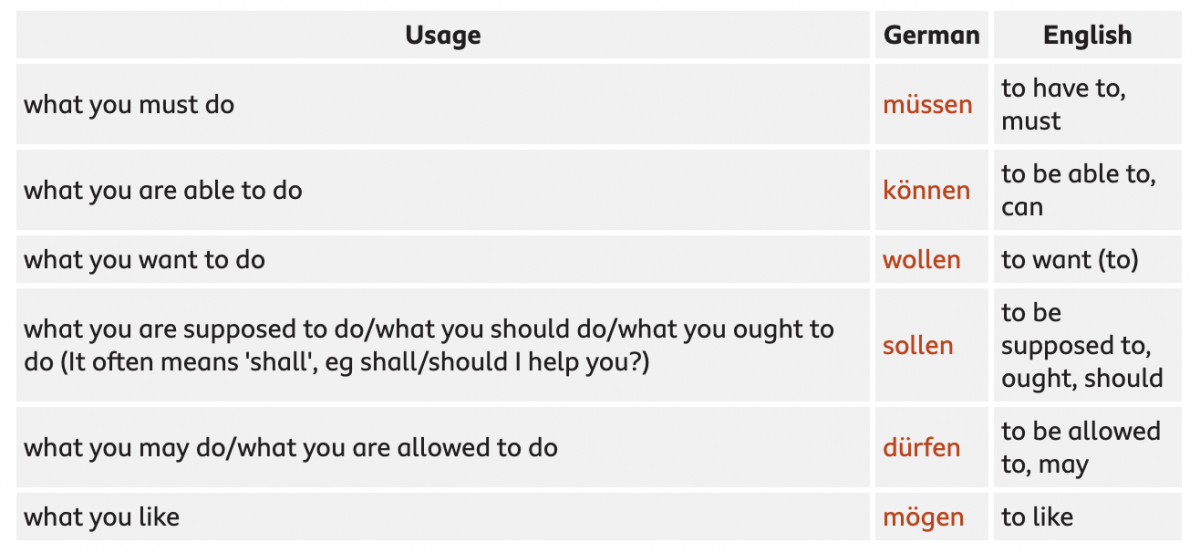German was my favourite subject from my first week of year 7 when I started learning it. I took it for GCSE and for A-Level and was accepted into university to study it, along with French (which I also did for GCSE and A-Level) and Italian. I ended up taking a different route for a while, but have come back to languages. Although I can remember a fair amount, completing A-Level past papers is proving fairly challenging. I'm certainly finding that the specific vocab learned for the topics covered in the syllabus is vocab that I haven't really used since - despite having been to Germany and having practised German with friends, on apps, and watching programmes in German.
Below are some useful tips for learning German. It's a challenging language, particularly in terms of grammar, but it does make some logical sense and there are ways to learn it.
Spelling | Sound | German Word Example | English Translation |
eu | oi sound | Deutsch | German |
äu | oi sound (same as eu) | Räumen | To clean |
ä | eh sound | Der Bär | Bear |
ö | err sound | Hören | To hear |
ei | i sound | Das Ei | Egg |
ie | ee sound | Viel | Lots |
au | ow sound | Die Augen | Eyes |
It seems really simple, but it is so important to spend time learning the vocab. If you don't know what a word means, then you're going to get very stuck! As words come up that you aren't sure of, keep a list. I usually collate a list and ask others to test me on it. Each time I get the word correct I get a tick next to it, and after 5 ticks, I should fairly confidently be able to tell you what the word means. Ensure you test yourself both ways too - German to English and English to German!
When learning German nouns, it is really important to learn the noun gender. It's a foreign concept to those who speak English as we simply use 'the' or 'a' for everything, but in German, each noun is allocated a gender (masculine, feminine or neutral). If you learn the noun with the gender to start with, I would expect you're more likely to remember what articles will be required (i.e. der, die, or das).
We conjugate verbs in English without really thinking about it. In fact, I hadn't heard of conjugation until I began learning foreign languages. You can read here for an explanation of verb conjugation posted on grammarly.com/blog.
To conjugate a typical regular verb, you find the 'stem' of the verb by removing the 'en' from the infinitive form. (i.e. 'spielen' is the infinitive and 'spiel' is the stem. You then add the following verb endings:
German Subject | English Subject | Conjugation of 'Spielen' (to play) |
Ich | I | spiel-e |
Du | You (informal) | spiel-st |
Er/Sie/Es | He/She/It | spiel-t |
Wir | We | spiel-en |
Ihr | You (formal) | spiel-t |
Sie | They | spiel-en |
You can get stem-changing verbs and irregular verbs, but generally, the verb endings still follow to some extent.
This article by Hyde Flippo explains these irregularities really well.
In German, the perfect tense is a form of past tense made up of an auxiliary verb (haben or sein) and a past participle.
It is important to know which auxiliary verb is required and how to conjugate this verb for the subject. Haben tends to be used for transitive verbs, where Sein is used for intransitive. I used to remember this by whether the verb related to movement (whether that's physical movement from one place to another or a change of state). If a verb does relate to movement (i.e gefahren, meaning 'travelled') then it would use sein. (i.e. Ich bin nach Frankreich gefahren.
Knowing how to form the past participle is also really important. For regular verbs, you take the stem of the verb by replacing the 'en' from the infinitive form with a 't' (lernen --- lernt) and then adding 'ge' to the start (gelernt). There are, however, many irregular verbs and it is just a case of learning these (i.e. sein --- gewesen).
In German, word order is really important for grammatical accuracy. There are a number of rules which can help you structure a sentence.
Number 1.
A verb should always be the second idea in a sentence.
Note: this doesn't mean it will be the second word in the sentence.
Ich liebe Schokolade - I love chocolate.
Above, the German sentence is structured as it would be in English. 'Ich' (the subject) is the first idea, and 'liebe' (the verb) is the second idea.
Im Sommer, spiele ich Fußball. - In summer, I play football.
Here, 'Im Sommer' (a time phrase) is the first idea, 'spiele' (verb) is the second idea and 'ich' (subject) is the third idea. You can see that in English the subject, 'I', is the second idea and the verb is the third idea showing the difference between the structure of the two languages.
Number 2.
When there are two verbs in a sentence (i.e. when using modal verbs), the modal verb is the second idea and the second verb goes to the end of the sentence. The modal verb should be conjugated and the second verb should be in its infinitive form.
Ich soll meine Hausaufgabe machen - I should do my homework
Ich muss meine Schwester helfen - I must help my sister.

Number 3.
When several pieces of information are used in a sentence, the sentence becomes quite complex. Time, Manner, Place is a concept used to help structure a sentence.
Time - when, how frequently
Manner - how, who with
Place - where

Number 4)
In German, there is a group of verbs called separable verbs ('trennbare Verben'). These are made up of a lexical cole (the main part of the verb) and a prefix (which may be a preposition).
When using separable verbs, you should send the prefix to the end of that clause and conjugate the 'main' part of the verb according to the subject 'doing' the verb.
auf/stehen - Ich stehe früh auf (I get up early)
Learn the cases as best as you can. As you begin to look at cases you'll see that there are systems and patterns for them and it's just a case of learning them all. Once you understand what each case's purpose/function is (see below), it can be a little easier to work out what is required in your sentence.
Nominative - the subject of the sentence (i.e. who / what is doing the verb)
Accusative - what the verb is impacting or being done to
Dative - to or for whom something is done
Genitive - used to show possession (i.e. belonging to someone/something)

Many prepositions take specific cases and it's just a case of learning them and applying these cases when the preposition is used. (i.e. mit + dativ)



